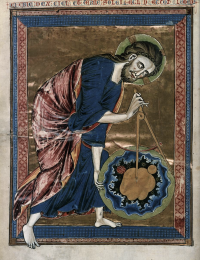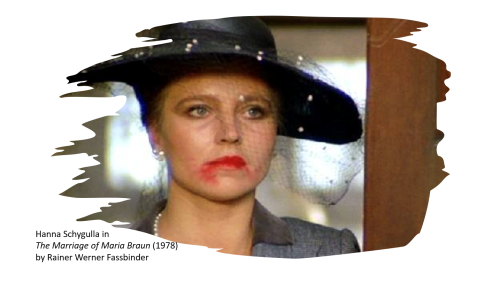Fall Quarter 2024
- For day, time, room, and TA information, see our PDF Schedule or the class search tool https://registrar-apps.ucdavis.edu/courses/search/index.cfm.
- For all courses not described here, please refer to the General Catalog course descriptions: https://catalog.ucdavis.edu/courses-subject-code/ger/
Jump to --> Language Courses | Lower-div | Upper-div | Graduate Courses
Not sure where to start with German?
Beginners: GER 001.
If you already know some German, you may be able to start with an intermediate class (020, 021, 022). Students with an AP exam in German and heritage speakers may be able to jump straight into upper division courses (100 numbers) and start working towards a minor or major. Take a placement exam and follow its suggestion unless it places you into 022 (the highest class the test knows): In this case, contact Language Program Coordinator Dr. Kirsten Harjes (kharjes@ucdavis.edu), because you might be ready for the upper division.
Placement exams: Olson Hall 53 (Davis Language Center), walk-ins during business hours, results available immediately. The test takes 20 minutes on the computer.
Lower division language program
GER 001, 002, 003: Elementary German. Introduction into German grammar and vocabulary in cultural contexts around the German speaking world. Classes are taught in German in student-centered small groups, emphasizing speaking, listening, and understanding grammatical concepts.
GER 020, 021, 022: Intermediate German. Classes ensure a review and further practice of first-year grammar with an increasing focus on expanding vocabulary, reading comprehension, and writing. Introduction of longer fictional and non-fictional texts and practice of higher-level communicative strategies and presentational skills.
Undergraduate Courses
Language
GER 001, 002 Elementary German
GER 020 Intermediate German
Upper Division
GER 101A Survey of German Literature, 800-1800
Kirsten Harjes

GER 101A bietet eine Übersicht über ausgewählte bekannte Werke deutscher Literatur zwischen dem 9. und 18. Jahrhundert. Texte und Autoren werden zeitgeschichtlich kontextualisiert und wechselweise im Original, in Ausschnitten und in Filmen vorgestellt. Das Seminar setzt neben dem Lesen auf Zusammenarbeit, Diskussion, szenische Darstellung und medienübergreifendes Arbeiten. Wir konzentrieren uns auf drei Schwerpunkte: 1) das Nibelungenlied des Hochmittelalters und seine stofflichen und mythischen Vor- und Nachfahren, 2) das christliche Mittelalter mit Martin Luther und der Reformation, und 3) die Anfänge der Moderne im 18. Jhdt. mit Lessings Schauspiel Nathan der Weise, in welchem er muslimische, christliche und jüdische Personen miteinander in Verbindung bringt.
Lernziele: Am Ende des Kurses wirst du in der Lage sein, einen groben geschichtlich und literarisch informierten Überblick über die Zeitspanne zu geben und deutsche Texte zeitlich und thematisch zuzuordnen. Deine Schreib- und Sprechfähigkeiten sowie dein Leseverständnis deutscher Texte werden sich verbessern. (CEFR: high B2/low C1)
Prerequisites: GER 22 or consent of instructor
GE Credits: AH, OL, VL, WC, WE
GER 142 New German Cinema
Kirsten Harjes

This course introduces a specific period in German filmmaking called New German Cinema. NGC spans roughly two decades from the 1960s to the 1980s. Subsidized by government grants to revitalize the timid and commercially driven film industry, NGC grew into an innovative and brutally honest documentary-style cinema addressing pressing political and social struggles of its time: Germany’s struggle with former Nazis still in political power; the pervasive silence around coming to terms with the atrocities committed in World War II; the exploitation of workers by elites in industry and politics; racism against newly arriving workers from southern Europe; feminism and the fight for equal pay and legalized abortions (protesting “§218”); the LGBTQ community’s fight for legalization (protesting “§175”); and finally the slanderous power of big media conglomerates destroying lives. Many of these societal struggles are as prescient now as they were then. NGC gave rise to internationally renowned directors such as R.W. Fassbinder, Margarete von Trotta, Wim Wenders, and Werner Herzog.
Prerequisites: No knowledge of German necessary. May be taken as a GER minor or major course if writing assignments are done in German.
GE credits: AH, OL, VL, WC, WE
Graduate Courses
GER 262 Studies in Turn-of-the-Century Culture
Chunjie Zhang
GER 291 Foreign Language Learning in the Classroom
Carlee Arnett
